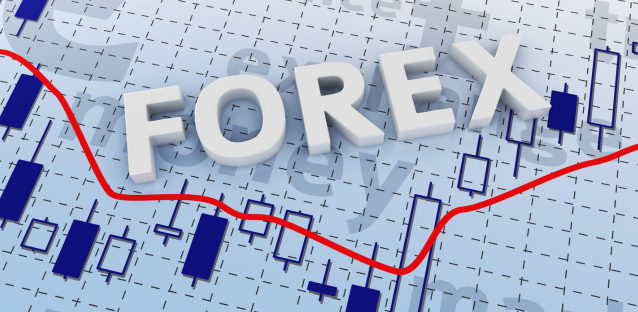Are indices better than Forex? In financial markets, two prominent players stand out: forex trading and Indices Trading. Both are popular forms of trading, but they operate differently and cater to distinct types of investors. metatrader 4 for macos
Forex trading looks at the exchange value of purchasing one currency and selling another, while Indices trading concentrates on tracking the performance of a group of stocks. This article will analyze Forex and Indices Trading, highlighting their key differences and unique advantages.
Table of Contents
Contents
- What is Forex Trading?
- What is Index Trading?
- Main Differences Between Forex Trading and Indices Trading
- Volatility and Risk
- Trading Hours
- Asset Variety
- Trading Strategies
- Cost of Trading
- Leverage
- Market Influence
- Market Accessibility
- Index Trading vs Forex Trading: Which is Suitable for You?
- FAQs
What Is Forex Trading?
Forex, also called foreign exchange, refers to exchanging one currency for another. Suppose you have traveled abroad and converted your money into a different currency or made online purchases using a currency other than your local one. In that case, you have participated in the forex market. Many traders would use a forex trading app provided by the broker.
In Forex Trading, investors speculate on the exchange rate fluctuations between currency pairs. For instance, if an investor believes the Euro will appreciate against the US Dollar, they can buy Euros with US Dollars, expecting to sell them later at a higher price.
What Is Index Trading?
Index Trading involves trading financial instruments that track a specific group of stocks representing a particular market or sector. These instruments are called indices and serve as indicators of any market segment’s overall performance. Indices are created to calculate the performance of a basket of stocks and offer a broader view of the market’s health.
Most indices use a free-float market capitalization-weighted procedure, where the firm size in terms of capital influences its effect on the index. Some are equal-weighted, giving each index member the same value. Many Forex traders use indices to diversify or hedge their portfolios through market and sector indices.
Main Differences Between Forex Trading And Indices Trading
-
Volatility And Risk
Forex Trading is known for its high volatility due to constant exchange rate fluctuations. This volatility can create significant profit opportunities and expose traders to higher risks. On the other hand, Indices Trading tends to be less volatile since it involves a basket of stocks, reducing the impact of individual company performance on the overall index.
-
Trading Hours
Forex Trading operates 24/5, allowing traders to engage in continuous trading. In contrast, Indices Trading is typically limited to the stock market’s trading hours, which may vary depending on the specific exchange.
-
Asset Variety
In Forex Trading, traders focus solely on currency pairs. In contrast, Indices Trading offers a more diverse range of assets, as indices can represent various sectors and industries.
-
Trading Strategies
Due to its high liquidity and frequent price movements, Forex Trading often involves short-term strategies, such as scalping and day trading. Indices Trading is more commonly associated with long-term investment strategies, as indices are more stable over time.
-
Cost Of Trading
Due to its high liquidity and intense competition among brokers, Forex Trading generally comes with lower trading costs, such as spreads and commissions. Indices Trading may involve higher trading costs, as the expenses depend on the broker and the specific index traded.
-
Leverage
Forex and Indices Trading offer leverage, allowing traders to control more significant positions with less capital. However, power in Forex Trading can be significantly higher than in Indices Trading, increasing the potential for both profits and losses.
-
Market Influence
Various factors, including economic indicators, geopolitical events, and central bank decisions, can influence Forex Trading. Indices Trading, while still impacted by broader market trends, is less affected by specific circumstances related to individual companies.
-
Market Accessibility
Forex Trading is easily accessible to retail traders, as most brokers offer a wide range of currency pairs and flexible trading account options. Indices Trading may require more significant capital and complex account structures, making it more suitable for experienced investors.
Index Trading vs Forex Trading: Which Is Suitable For You?
The choice between Index Trading and Forex Trading depends on your risk tolerance, asset objectives, and trading preferences. Forex Trading might be better if you prefer a highly liquid market with constant price movements and a focus on global economic factors. On the other hand, if you seek a more stable and diversified long-term investment with exposure to broader market trends, Indices Trading could be a more suitable choice.
In conclusion, forex and indices trading fundamentally differ in the assets traded, market volatility, leverage, trading hours, and market participants used. Understanding these differences is essential for traders considering trading in either of these markets.
FAQs
Is Forex Trading Riskier than Indices Trading? Forex Trading is generally considered more difficult due to its high volatility and sensitivity to economic events.
Can I engage in both Forex Trading and Indices Trading simultaneously? Many traders diversify their portfolios by participating in Forex and Indices markets.
What are some popular currency pairs in Forex Trading? Popular currency pairs include USD/EUR, USD/GBP, and JPY/USD.
Do Indices Trading strategies require continuous monitoring? While long-term indices investments require less monitoring, active traders may need to monitor market movements closely.
How can I start trading indices? To create trading indices, open an account with a reputable brokerage firm, conduct research, and develop a sound trading plan.
